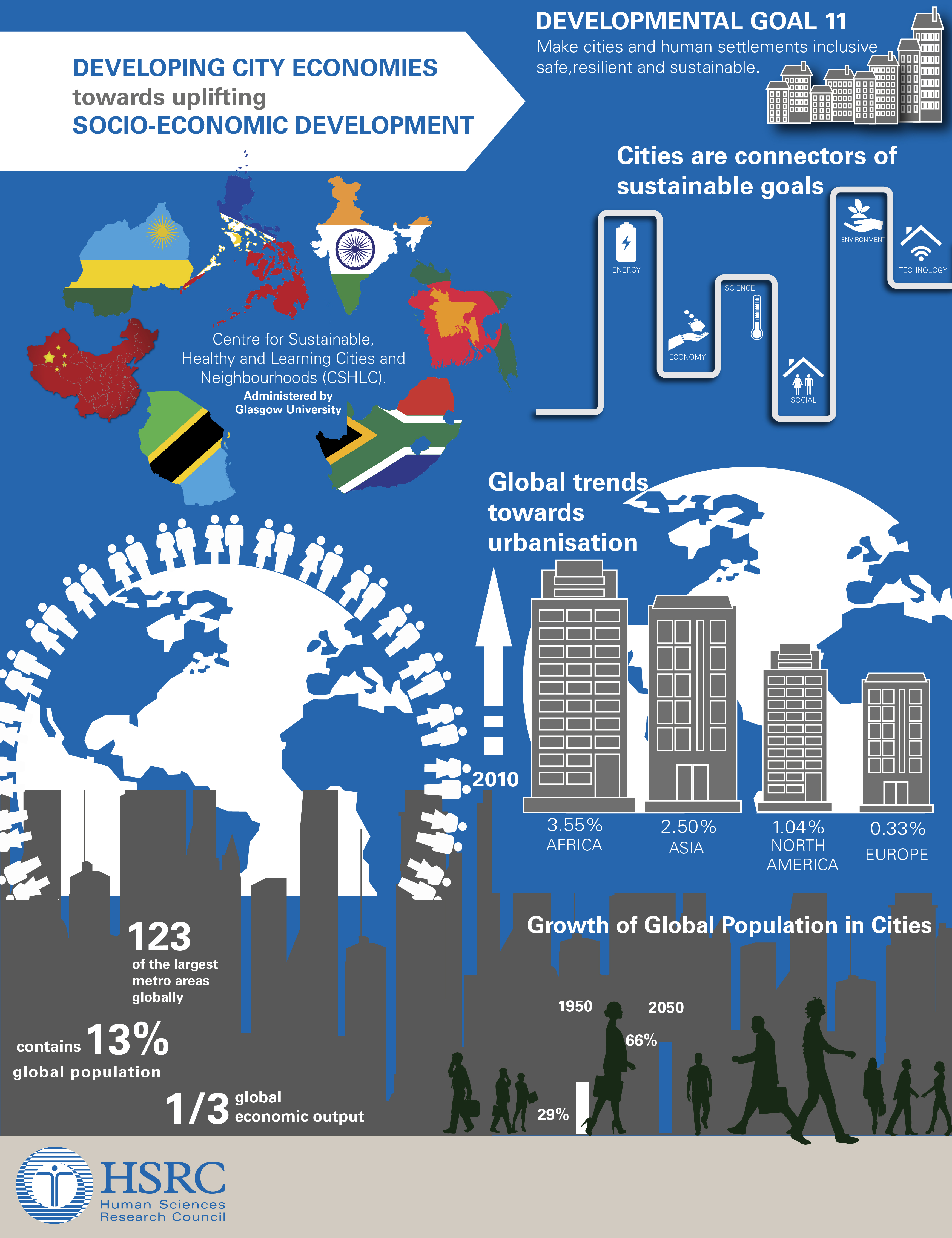Pretoria, Monday 24 July 2017 – In responding to the ever increasing levels of poverty and inequality in South Africa, the Human Sciences Research Council has defined as its guiding theme for the next five years: ‘poverty and inequality: diagnosis, prognosis, responses.’
As part of understanding the drivers of poverty and inequality, the HSRC will focus on understanding the economic and social dynamics of cities and neighbourhoods.
Crucial questions to which responses and remedies will be sought include: how do cities foster inclusive economic growth and social transformation, and how can neighbourhoods be made more equitable and integrated?
The process of urban economic and social change will be looked at by the HSRC and other research partners who form an international consortium called the Centre for Sustainable, Healthy and Learning Cities and Neighbourhoods (CSHLC). The CSHLC will be administered at Glasgow University with partners located in South Africa, China, Tanzania, Rwanda, India, Bangladesh and Philippines.
The work of the Centre has been boosted by the award of a multi-million pound grant from the UK’s Global Challenges Research Fund (GCRF). The GCRF will fund 37 interdisciplinary projects over the next four years.
It is anticipated that the Centre will strengthen capacity among urban researchers, government officials and policy makers in developing countries. The Centre will also conduct comparative studies of urbanisation and urban neighbourhoods to understand and respond to the challenges posed by large-scale rural to urban migration.
In reflecting on the significance of this announcement, for South Africa in particular, and the global community in general, Professor Ivan Turok, Co-Investigator, said: “This award will improve our knowledge of how people’s wellbeing and life chances are shaped by the neighbourhoods in which they grow up and live. It will also assist in identifying local policy interventions that can ameliorate poverty and deprivation.”
“The HSRC’s work as part of this Consortium will impact positively on how South Africa responds to urbanisation and manages the inflow of citizens into cities. We are very excited about the outcomes and impact of the work we are going to undertake in collaboration with our international research partners,” concluded Professor Turok.
Follow the conversation on #ResearchMatters #HSRC

About the Human Sciences Research Council (HSRC)
The HSRC was established in 1968 as South Africa’s statutory research agency and has grown to become the largest dedicated research institute in the social sciences and humanities on the African continent, doing cutting-edge public research in areas that are crucial to development.
Our mandate is to inform the effective formulation and monitoring of government policy; to evaluate policy implementation; to stimulate public debate through the effective dissemination of research-based data and fact-based research results; to foster research collaboration; and to help build research capacity and infrastructure for the human sciences.
The Council conducts large-scale, policy-relevant, social-scientific research for public sector users, non-governmental organisations and international development agencies. Research activities and structures are closely aligned with South Africa’s national development priorities.
